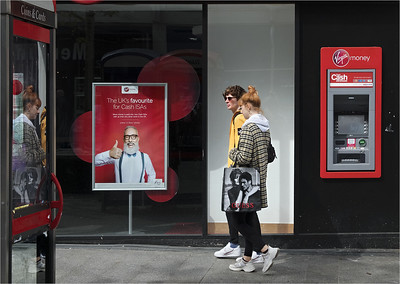
Virgin Money says its mortgage book slipped 1.1% during in the year to £57.5bn compared to 12 months ago, “as the higher rate environment and wider cost-of-living pressures tempered purchase activity”.
The UK’s sixth-biggest lender adds in its full-year statement: “Average mortgage lending was broadly stable during the period, reflecting weaker market demand in light of higher rates and lower new purchase activity.
“Customer rates for new and retained mortgages increased as a function of the base rate environment, though spreads remained tighter reflecting continued strong competition.
“Taken together, the average mortgage yield increased by 46 basis points, supporting higher mortgage interest income.”
Overall, the bank posted pre-tax profits that missed forecasts tumbling 42% to £345m as it set aside £309m for credit card impairment charges, up from £52m the previous year.
However, its net interest margin – the difference between what it charges to borrowers and what it pays out to savers – rose by 6bps to 191bps from a year ago, boosted by Bank of England base rate rises that have lifted 14 times since December 2021 to 5.25%.
The bank booked a write-off of around £45m during the year as part of its mortgage digitisation programme following “challenges identified during testing”, up from £28m last year.
In 2024, the lender says “we anticipate full-year net interest margin of 190bps to 195bps, reflecting the benefit of structural hedge reinvestment and a higher yielding asset mix, offset by ongoing competitive pricing pressures in mortgages and deposits”.
Virgin Money chief executive David Duffy adds: “In mortgages, our aim is to maintain our market share over time at around 3.5%. During the year, we traded well against lower market activity levels and strong competition.”
Investors in UK lenders are concerned about tougher competition for savers’ cash and potential loan defaults as the cost-of-living crisis weighs on the sector.
Shares in Virgin Money were down 3.8% to 151p in early afternoon trading.



